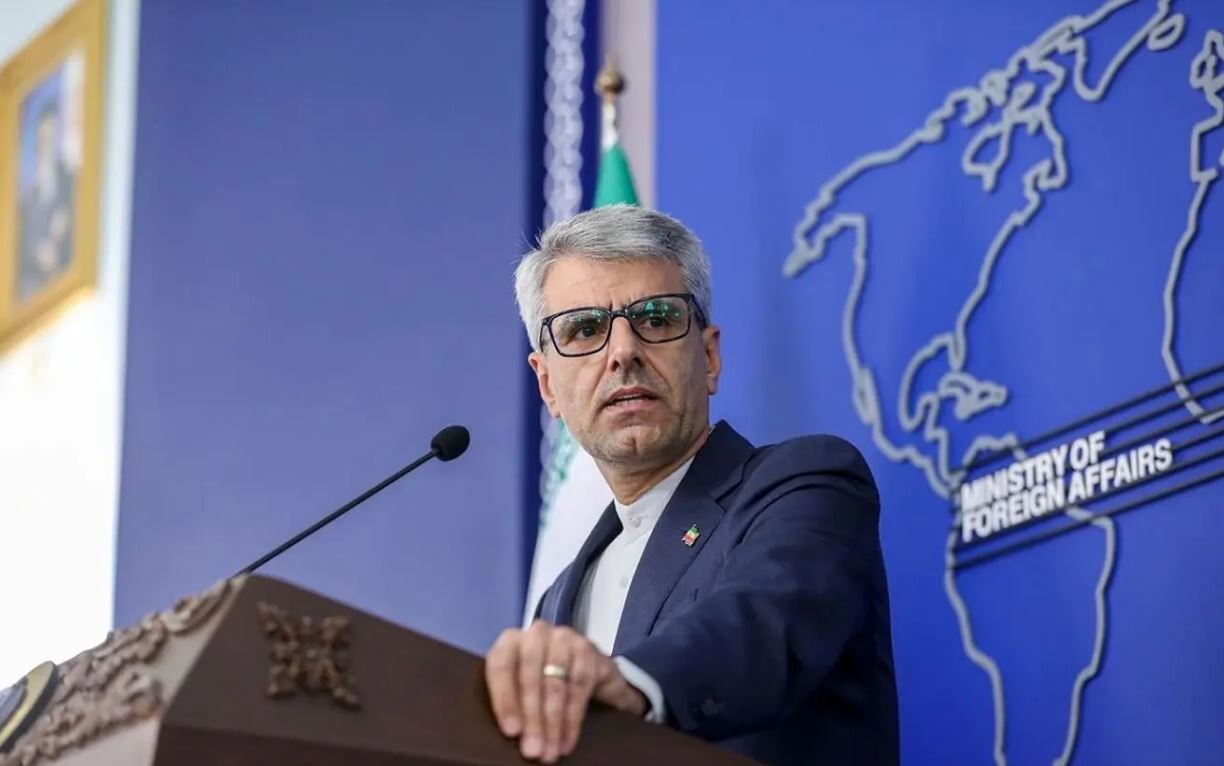Tehran denounces E3 claims, defends nuclear activities as within legal rights

TEHRAN – Iran has strongly rejected accusations from three European nations regarding its nuclear program, warning it will respond appropriately to any confrontational actions.
The remarks were made by Iranian Foreign Ministry spokesman Esmaeil Baqaei on Tuesday in response to a joint statement by France, Germany, and the UK.
The European trio accused Tehran of failing to meet its commitments under the 2015 Joint Comprehensive Plan of Action (JCPOA) and United Nations Security Council Resolution 2231, urging Iran to stop what they referred to as “nuclear escalation.”
The European statement followed a report by the International Atomic Energy Agency (IAEA), which revealed increased uranium enrichment activity by Tehran. This escalation was framed as a response to a recent Western-backed resolution censuring Iran for alleged non-cooperation with the IAEA.
In his response, Baqaei defended Iran’s actions, explaining that the country had activated advanced centrifuges as part of its rights under the Non-Proliferation Treaty (NPT). He emphasized that these measures were carried out transparently, with due notification and under IAEA supervision.
"As a responsible member of the IAEA, the Islamic Republic of Iran has consistently demonstrated its commitment to cooperation with the agency,” Baqaei stated, referencing the productive visit of IAEA Director General Rafael Grossi to Tehran on November 14-15.
The spokesman criticized France, Germany, and the UK for their “unconstructive approach” and their resolution against Iran, which he argued undermined the progress made during Grossi’s visit.
Baqaei also highlighted a scheduled November 29 meeting with European representatives in Geneva, reiterating Iran’s commitment to dialogue and constructive engagement based on mutual respect. However, he warned that Iran would firmly respond to any hostile or illegal actions within the framework of its legal rights.
The spokesman further attributed the current tensions to the U.S. withdrawal from the JCPOA in 2018 and the subsequent failure of the European signatories to uphold their commitments. Iran has gradually reduced its compliance with the deal in response to these developments, citing economic losses caused by re-imposed sanctions.
Baqaei urged the European nations to focus on addressing the root causes of the crisis, which he described as a “combination of continuous breaches of commitment and the illegal policy of sanctions and pressure against the Iranian people.”
Despite the challenges, Baqaei reaffirmed Tehran’s belief in constructive interaction and emphasized the importance of mutual adherence to commitments to pave the way for future cooperation.
